Should You Overhaul or Replace Your Diesel Engine?

Thinking about a new diesel engine for your boat but not sure if you should rebuild or repower? We investigate what’s involved.
Unlike cars, boats don’t go to the wreckers and it is not uncommon to see fiberglass boats that are 30 years old still being used today and some in almost as-new condition. In fact, several have been given a new lease on life with a full re-paint or even wrapping.
If your boat is in good order but the engine’s getting a little tired, then changing to a new or even late model, lower-hour engine is certainly a wise investment.
Unlike a car that normally doesn’t increase in value just because the engine may have been rebuilt, or it’s got new tires, a new inboard or outboard engine adds value to the overall boat package.
The engine is the heart of your boat. Without a reliable and durable engine that does its job in any situation, owning a boat is no pleasure but instead a never ending struggle against the elements.
If you have a boat you like and are satisfied with but find that it is powered by an engine that no longer meets your requirements, you stand to gain a lot by replacing it. Thanks to the fast pace of technological developments in recent years, you are going to notice some major changes when you change to a new engine: increased safety and reliability, improved comfort, better driving pleasure and more secure maneuvering, higher performance, immensely reduced environmental impact, easier adaptation to modern accessories, better fuel economy, and increased value of your boat overall.
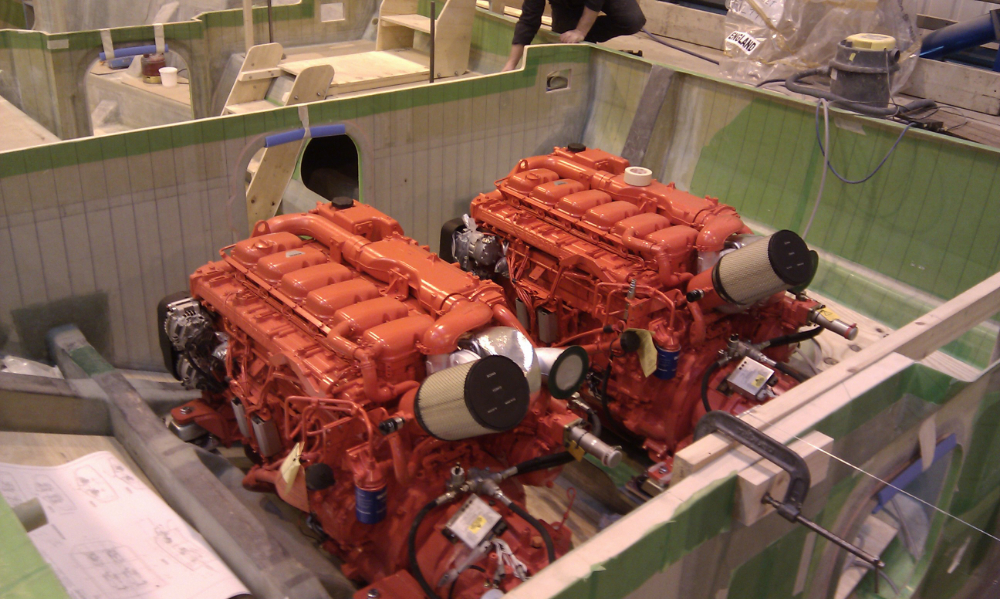
A NEW ENGINE INCREASES YOUR BOAT’S VALUE.
By just how much depends on the type of boat and how attractive your particular boat model is on the market. Having said that, it is unusual for the entire cost of re-powering to be recovered in terms of enhanced resale value. However, if you make a comparison over a number of years between having a new engine with all that means in terms of high operating reliability, and running an old engine that may require major and perhaps even recurring repairs, re-powering may well make sound economic sense. The main reason for re-powering, however, is quite simply because it gives you so much more enjoyment out of your boat. You invest in security and peace of mind, knowing that your boat will power you safely every time you want to head out to sea.
One option instead of re-powering your boat, is to consider re-conditioning the engine to give it a new lease of life, or to at least make it last a little bit longer.
Reconditioning instead of fitting a new engine is an alternative to consider. However, no matter how you look at it, an engine ages and there comes a time when it simply doesn’t make economic sense to repair or recondition it. The challenge is to avoid repairs and reconditioning that involve major investments in an engine that will still never be able to deliver the performance and reliability you want.
When it comes down to rebuilding an engine or re-powering, when you’re looking at a rebuild option what you have to take into account is that it can take just as long to strip a 100hp six-cylinder engine as it does to strip a 400hp six-cylinder engine.
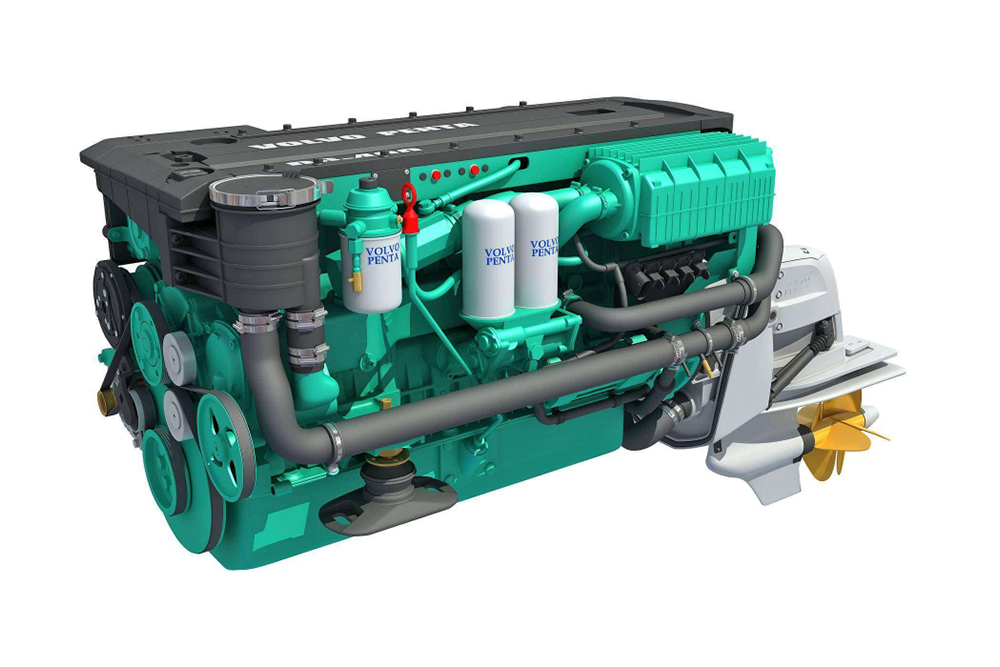
Your labor costs can often be the single largest cost of the overhaul. Therefore, it is important to consider the overhaul cost and to then compare the price of a new replacement engine. If you are replacing like for like, sometimes it is cheaper to purchase a replacement engine and re-power the boat. With a re-build you will have the cost of stripping the engine down to inspect what sort of wear and tear there is, then you have the cost of machining of the block, crank and cylinder heads, replacing worn components, then the cost of putting it back together.
This versus buying a new engine, in a bob-tail format, without all the wiring looms and engine mounts etc which can reduce the cost. Then you also have added benefit of the new engine warranty. Talk to your distributor or dealer as they often have many different options to keep rebuild costs down for you from long engine’s to short blocks to complete overhauls kits.
People’s interpretation of a re-build varies. Some only replace components that need to be replaced, and think that the rest is fine and will last the distance for now.
When considering a re-build as an option make sure you have a detailed list of what the job includes and what components are being replaced so you can make an informed decision.
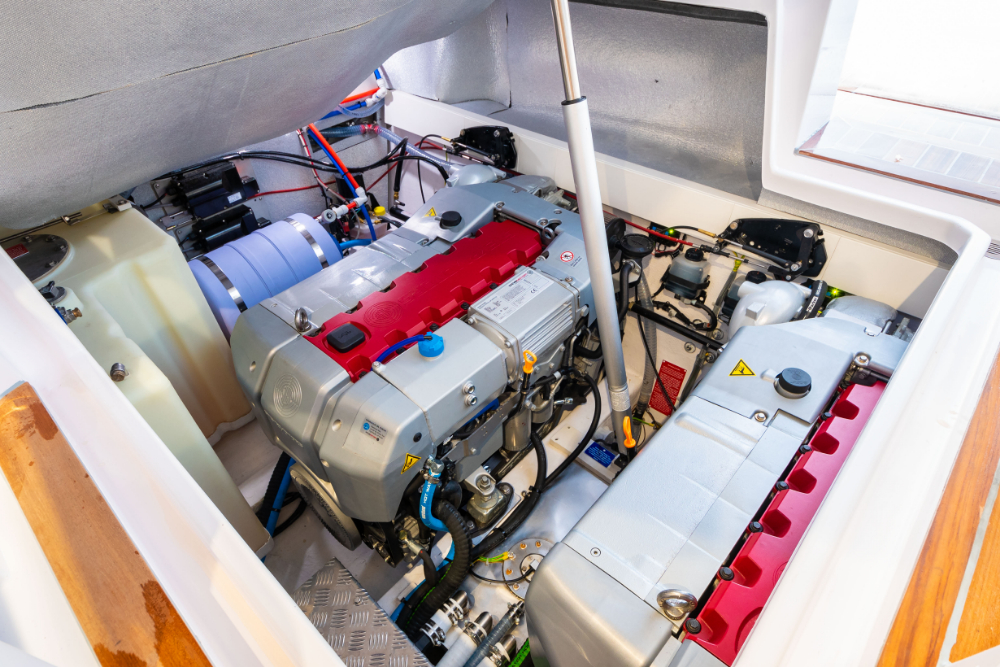
RE-POWERING INVOLVES MORE THAN JUST THE ENGINE.
A marine engine installation consists of more than just the engine. It is connected to several systems that must all be optimized to suit both the engine’s and the boat’s characteristics.
Electrical: The electrical system is vital for engine reliability. It must be dimensioned correctly and with reliable connectors throughout. Electrical cables age with time and lose both conductivity and insulation properties. For safety reasons, they should be checked and replaced when needed.
Air: For optimum performance, the engine must have a clean, undisturbed air supply. The needs of the new engine may be different from the one replaced.
Fuel: A reliable supply of clean fuel is crucial and the fuel system should be thoroughly checked. Also, since fuel is flammable, there must be no leakage. If converting from gasoline to diesel, the tank and fuel lines may have to be changed.
Exhaust: The exhaust system affects engine performance, engine sound and onboard comfort and must be dimensioned for the new engine. Rubber hoses should be checked for wear and signs of aging.
YOU NEED A COMPETENT ENGINE SUPPLIER
Choosing an engine supplier for your re-powering is as important as choosing the right engine. No matter whether you intended to sub-contract the entire job or do it all yourself, you will need to have contact with a dealer that has experience and competence.
Look for a reputable dealer with experience of re-powering jobs like the one you are planning. A competent dealer is indispensable to a successful result, not least when the time comes for start-up and a test run.
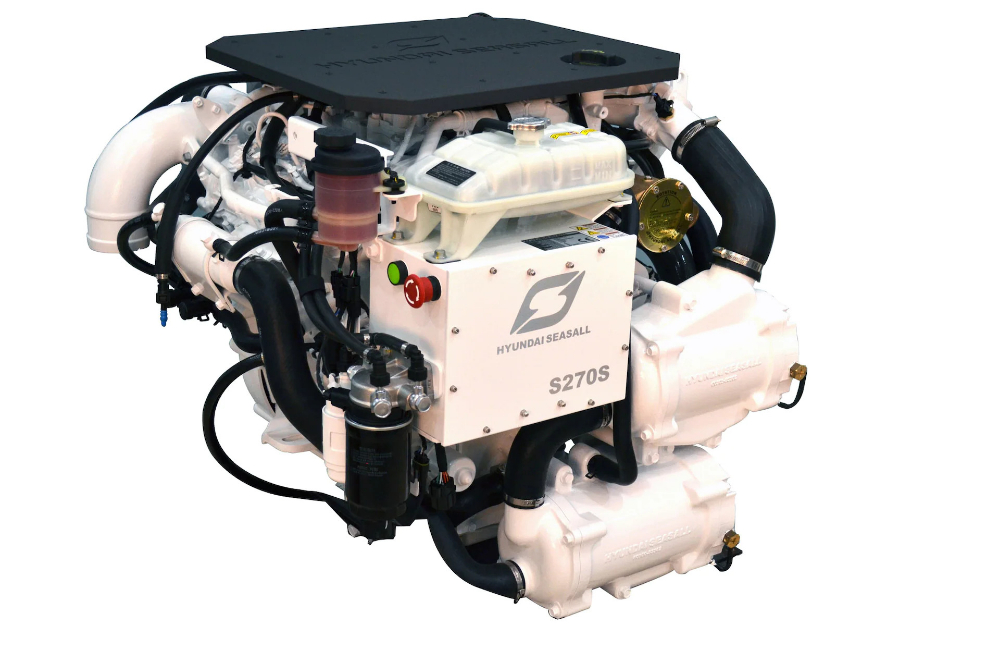
COST
It may seem simplicity itself to find out what a new engine should cost, especially with all the information that is so easily accessible in today’s modern electronic society. However, just don’t forget to compare like with like!
The price of the engine itself is one part of the cost. The cost of installation, trade-in value, any additional components that are required and modifications to permit installation in your particular boat must also be considered. Once again it is the choice of dealer that is crucial.
Make sure you get a detailed and all-inclusive proposal from your dealer. The proposal should be based on a complete inspection of your boat that you and the dealer carry out together.
Here, you should go through all the systems that are affected: water, exhaust, air, fuel, electrics/electronics as well as any other work that you may want to have done at the same time. Take advantage of the dealer’s experience to find out what your possibilities are, and think carefully about exactly what you want improved in your boat.
The most secure solution for you is a “turnkey job” that includes everything. The dealer will carry out the entire re-powering operation and guarantees that the boat will function correctly with the new engine. If you want more work carried out, this must be specified in the proposal. The same thing applies if you want to do all or part of the job yourself. Draw up an agreement that specifies exactly who does what and what the dealer’s responsibility is regarding the final result.
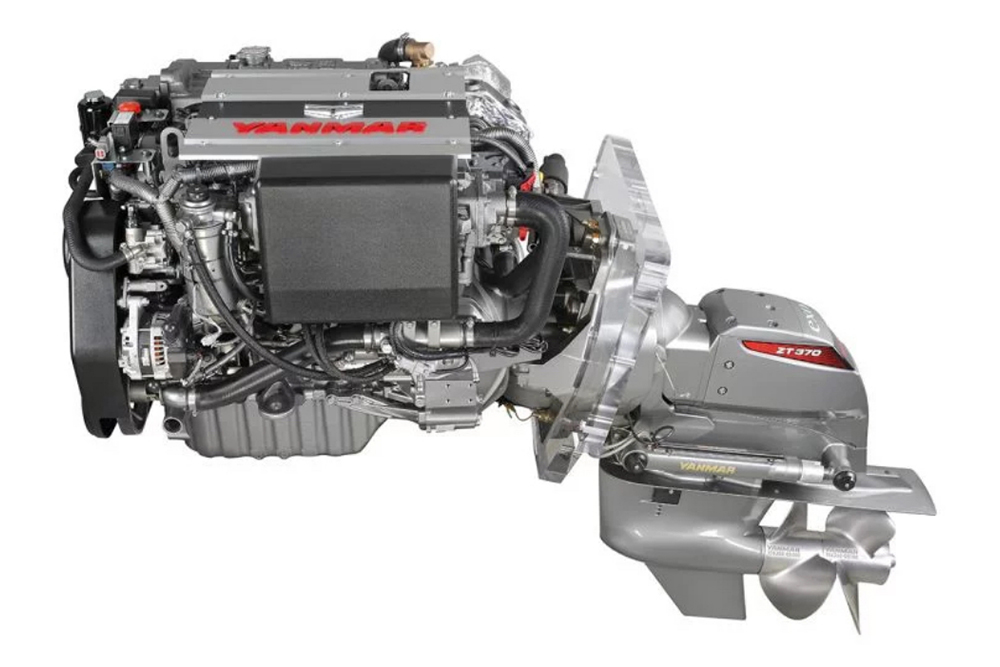
CHOOSING THE RIGHT ENGINE IS CRITICAL
The right engine for your boat depends on a variety of factors: how fast you want to go, how much power margin you want, how important comfort is for you, how many passengers/how much load you generally carry and so on.
The engine must naturally fit as regards size and weight, and in addition the air and water supply must be matched to the needs of the new engine, the fuel system has to be appropriately dimensioned, instruments and controls must be added, and much more besides. If you switch to an engine with higher power, you need to examine the, transom, engine mountings, the transmission and propshaft or drive.
The correct choice of transmission and propeller requires specialist know-how and here, you really need the help of a highly competent partner. Some boats are also certified for a specific power range, which limits the choice.
These are important issues that have to be dealt with correctly right from the start. If you’re not in the financial position to purchase and re-power with a new engine, the second hand market is worth a look, with quite often a lot of re-conditioned and low houred engines available.
The greatest achievements in technical development have taken place with diesel engines, they are now a lot lighter, have electronically controlled common rail fuel injection, multi valves per cylinder and various types of optimized forced induction with turbocharger and sometimes also compressor (supercharger). All this gives performance equal to, and sometimes even better than, that of petrol engines of the same displacement. At the same time, fuel consumption is lower, reliability is greater, service life longer and second-hand value higher.
Petrol engines offer high performance and relatively low weight. Electronic fuel injection gives high reliability, low emissions and fast response for an enjoyable experience at the helm.
If you switch from petrol to diesel, you can often specify a lower power output without actually losing anything in terms of performance, apart from outright top speed, since a diesel engine offers better torque as well as being designed to operate closer to its max rev limit.